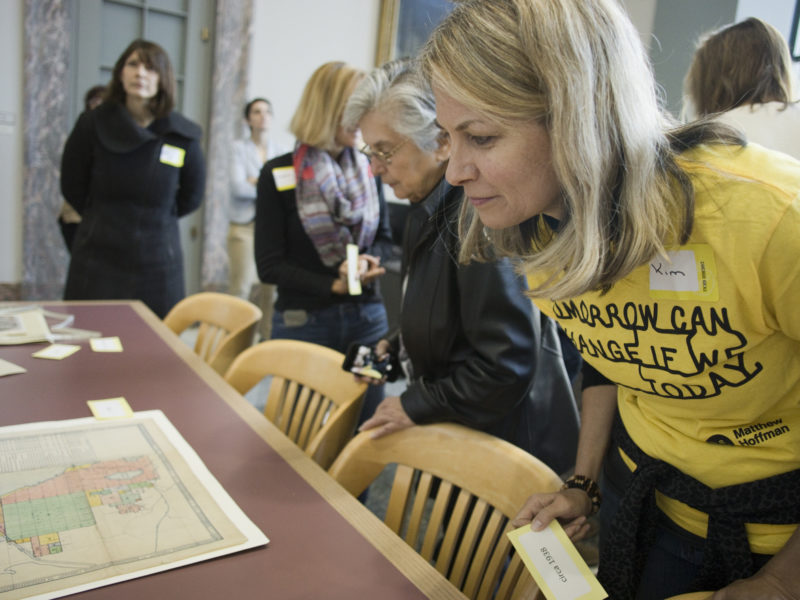
Wharton Professor Adam Grant Provides Work and Life Advice on the Chicago Ideas Stage
Wharton Professor Adam Grant divides the world into three distinct categories: givers, takers and matchers. The New York Times-bestselling author of Give and Take—whose door is always open to students and who uses his academic research to help others navigate their careers—falls firmly in the giving camp. Enron CEO Kenneth Lay is the classic taker: greedy, ruthless and manipulative. And matchers? Those are individuals who follow the mantra of “quid pro quo.”
Quid pro quo, Grant said at the beginning of his Chicago Ideas Conversation, is the standard by which most Americans approach work. But does the research support that strategy? According to the organizational psychologist, “the answer is…a definitive maybe.”
 |
| Jackson and Grant discuss the give and take of the American workplace at a Chicago Ideas Conversation on Wednesday, June 11. |
In the Conversation, held this past Wednesday, June 11 at Morningstar, Grant used data and anecdotes to illustrate the advantages of being a giver or matcher in the marketplace—and the many downsides to employing takers. “One bad apple spoils the bunch” isn’t just a saying; it describes what happens to a workplace when even one taker joins the staff.
Following a 15-minute Talk by Grant, Chicago Ideas board member Sonya Jackson took the stage to interview Grant further about the principles outlined in Give and Take. Jackson drew on her experience as former president of the United Airlines Foundation as she led Grant through a discussion of how audience members could use Grant’s research to improve their lives.
One answer, it seemed, is to avoid politics. “Politics is a world that basically doesn’t match any characteristics in which givers succeed,” Grant said.
But for those in other fields, Grant stressed one key “philosophical” takeaway from his research. Ask yourself, he told Jackson, “Is your success making other people better?”
If not, you just might be a taker after all.




